Prefer to Listen?
Subscribe to our podcast to listen to this week’s episode on your favorite podcast platform.
Historian Howard Zinn would have turned 100 in 2022. His monumental work, A People’s History of the United States, published in 1980, continues to have an impact today. For Zinn’s’ centennial we explore what made his model of history different with three guests who were influenced by his bottom-up approach: Anthony Arnove worked with Zinn throughout the latter part of his life, and wrote the introduction for the 35th-anniversary edition of Zinn’s classic work; Jamaican poet, performer and writer Staceyann Chin performed in The People Speak, a documentary film based on A People’s History; and Imani Perry, professor of African American Studies at Princeton University who just won the National Book Award for Nonfiction for her own bottom-up history: South to America: A Journey Below the Mason-Dixon to Understand the Soul of a Nation. What lessons can we take from Howard Zinn’s model of history for this time?
“. . . [Howard Zinn] was extremely clear on the importance of anti-racist education, so he would be absolutely in solidarity with people associated with critical race theory . . . who are just trying to do basic education about the history of racism . . .” – Anthony Arnove
“This book is only beginning to uncover what really happened throughout history . . . a hundred years from now, new truths will come forward and be recorded in new ways. New enlightenments will come to us, and new truths will land on us in different ways.” – Staceyann Chin
“Even as there are devastating events and all of this injustice, you actually can feel hopeful. That’s incredibly important . . . that you give people a sense of possibility and a desire to invest in freedom.” – Imani Perry
Guests
- Anthony Arnove: Editor, Voices of a People’s History of the United States; Director, The People Speak; Editor, Director & Producer, Voices
- Staceyann Chin: Poet, Performer, & Activist, The People Speak
- Imani Perry: National Book Award Nonfiction, South to America: A Journey Below the Mason-Dixon to Understand the Soul of a Nation; Professor, African American Studies, Princeton University
Transcript
HOWARD ZINN: I grew up in a working class family. I went to work in a shipyard at the age of 18, worked there for three years, then I enlisted in the Air Force became a bombardier in World War II and after the war I went to college under the GI Bill of Rights. My first teaching job was at Spelman College in Atlanta, Georgia, the college for Black women. And I became involved in the struggle in the south against racial segregation. I had been teaching for years and my students kept asking me if I knew of a book that offered a different view, a well a radical view, a critical view of American history. I was looking for such a history myself and couldn’t find it, so I thought, well, I’ll write it.
LAURA FLANDERS: That was Howard Zinn, born in 1922, died in 2010. His 1980 book, “A People’s History of the United States” has sold millions of copies. Zinn told history from the bottom up, putting people first and laid out a version of the story in which people’s movements as much or even more than kings and presidents mattered. While “A People’s History” itself came out over 40 years ago it’s still changing the way history is not only told and understood, but also quite possibly made. Today we take a look at the work and influence of historian and activist Howard Zinn. Our guests have all influenced and touched by his work. Anthony Arnove, who worked with Zinn throughout the latter part of his life and wrote the introduction to the new 35th anniversary edition, co-edited with Zinn “Voices of A People’s History of the United States” a sort of source book of speeches, articles, essays, poetry and song lyrics by the people whose stories are told in the People’s History. Jamaican poet, performer, writer, actress, Staceyann Chin has had a chance to perform some of those speeches live on stage and performance and in “The People Speak” a documentary based on the work and co-directed by Zinn with Anthony Arno. The clip we just played came from that documentary. Imani Perry, professor of African-American Studies at Princeton University just won the National Book Award for non-fiction for her own bottom-up history called “South To America, A Journey Below the Mason Dixon To Understand the Soul of a Nation” about which we interviewed her earlier this year. All three of you thank you so much for gathering for this centennial celebration of Howard Zinn’s birth and a look at how his work continues to influence not just the field of history, but I think our lives.
I’m going to start by asking each of you, if there is somebody out there who has yet to pick up “A People’s History” even to skim through it or might be unfamiliar with the name Howard Zinn, what would be your short sharp to the point pitch to them? Let’s start with you, Imani Perry.
IMANI PERRY: Yes, thank you, Laura. I mean, I think the clearest way to say why people should read it is that it actually offers an opportunity to learn history that is not romanticized that is not mythologized, but is actually a real history that considers both the experiences of those who are oppressed and marginalized and also the struggles and triumphs of those people. I think when we study history, we are actually being, we learn to become stewards of our own time.
LF: What about you, Staceyann, your pitch, why should somebody read Howard Zinn?
STACEYANN CHIN: By now, 2022 everyone knows that the history of America, history of the United States recorded in any literary canon in any measure of beauty or value. We know that the history of the United States that is recorded there is at best incomplete, at worst a compilation of lies. And if you are interested in truth if you’re interested in justice, if you’re interested in a complete understanding of history of the United States, if you’re interested in the voices that have been left out if you’re interested in voices that were not allowed to speak in the times that they lived, if you want to be a part of uncovering the real history of America, pick up Howard Zinn.
LF: Anthony coming to you, your pitch. I’m already pretty sold.
ANTHONY ARNOVE: Yeah, I’m sold too and I can’t say it nearly as eloquently as Imani or Staceyann, but just speaking personally, I’ll say that when I was growing up and going to public school history was my least favorite subject and I just really felt there was no point of entry partly because it was that distorted top-down history of presidents and generals and military conquest. And it felt so distorted to me but also felt like there was no entry point to that history. And Howard’s book was the first book that awoke me to the drama of history to the role of ordinary people in history. And once you start understanding history from that standpoint and exploring those voices that Staceyann mentioned that had been left out of so much of our mainstream culture and so many of our official histories and textbooks or have been presented in one dimensional caricatures once you start understanding the fullness of the struggles that they took part in and their eloquence gives you a very different conception of the present and also a different sense of possibility about the future.
LF: It can get kind of exciting even. Now, Anthony, I was kind of struck to go back and realize that the book first came out in 1980.
AA: Yeah, it came out at a time of right wing backlash but it connected with all of those people who had participated in the struggles of the 1960s and 1970s and were looking for ways to advance them and looking for ways to continue to move forward struggles for justice. And so really a grassroots kind of underground network of educators, of librarians, of organizers, of activists brought this book to the audiences that then found it and were transformed by it and it’s really a book that over and over and over again, people say changed their lives. It certainly changed mine.
LF: Staceyann, do you remember the first time that you came across a copy of “A People’s History”?
SC: What’s the name of the movie with–
AA: Good Will Hunting.
SC: Good Will Hunting. And this book just appeared, paused the movie and got up and went to look for it. I wasn’t even quite an activist yet but I found it interesting at the time. And then I think my relationship with the book changed when Anthony pulled me in to become a reader when I was a poet in New York City a kind of loudmouth, a kind of rabble rouser, a kind of dissenter myself and Anthony hauled me in and said we’d like you to come read this stuff. And I was like okay, great.
LF: We’ve talked about some of the roundabout ways that people come across the work of Howard Zinn. I’m wondering how you as a professional historian Imani Perry and professor, how you came across his work and whether you use it in your teaching and your writing today.
IP: So I was a kid in Cambridge in that sort of same milieu. My mother and I had moved to Cambridge, Massachusetts so he was around and it was a sense, I think, gosh I must have been seven or eight, I remember it being in our house, the book being in our house and there was a sense in which there was still, even though this was an era of the backlash and the Reagan era, there was still a sense of movement sort of organizing taking place. And so this was seen as a text a way of reframing American history. So I don’t teach the book, but without question it is one of those books that actually shaped the way I understood the story of the country. And in some ways it was a great gift to have that as a contrast to what one might receive in the classroom especially once I got to high school. I went to progressive elementary school but once I got to high school, having a sort of counter narrative of US history is actually I think for me, part of how I became an intellectual.
LF: So talk a bit about how different his version of history was, and we should say that he wasn’t the first person to do people’s history. A people’s history, if you like, could be seen in the work of W.E.B. Du Bois’s “Black History of Reconstruction”. There’s many other examples and Zinn would be the first to acknowledge them. But for those who may be aren’t as familiar as you are with what history was like, I don’t know when he was born 100 years ago versus how it is today. Could you talk a bit about the distinction between that kind of history and this kind Imani?
IP: There’s two pieces that are really important to me. One is that it is so readable. So the idea that writing beautifully actually is important when you tell history because it actually allows people to get engaged. But also, and I think this probably had something to do with the fact that he came out of movement, it is not just history from the bottom, from the perspective of sort of talking about those who were doing the laboring but actually focusing on their struggles, on their sort of political, very sort of politicization and advocacy and organizing, all of those kinds of things from multiple traditions. So you read the book and even as there’s all these devastating events and all of this injustice you actually can feel hopeful and that’s incredibly important, especially when you’re in a backlash moment that you give people something, a sense of possibility and a desire to invest in freedom. And I think that’s what the book did and does still, it’s part of why it’s still so widely embraced.
LF: In that introduction to the “The People Speak” documentary. We hear Howard Zinn talking about writing the book that didn’t exist and that he was asked for by younger people. Anthony, that was part of why he did it to fill a vacuum. But as Imani is suggesting, he had other agenda too. Can you talk about those? What he wanted his work to do?
AA: Yeah, I mean, first of all I think Imani is absolutely correct to point to giving people a sense of how movements ebb and flow and how people have organized throughout history under circumstances that eventually brought about change through their efforts that they never imagined that they might see in their lifetime and in many cases didn’t see in their lifetime. So giving people that sense of historical perspective, giving that sense of organic movement and how social movements are incredibly powerful in the work through which ordinary people have built those movements. But I also think he wanted to give people a sense of their own agency, their own voice, their own power, their own role in making change. And so he had seen that himself in his own participation in the southern movement, in the struggle for civil rights and the struggle against the Vietnam War, in his union organizing. And he had a real infectious way of conveying that a life lived in struggle was the most meaningful life one could live. And so he was very eager to kind of pass on that sense of possibility, that sense of hope and that sense of community of doing vital work with other people in struggle.
LF: That’s a little bit of what you were just talking about, Staceyann, that sense of being empowered by the stories that Zinn told and that you got to perform some of those speeches. Can you put your finger on perhaps how any of this experience has changed you in your work?
SC: There’s something that happens when you actually are embodying, personifying the speech, when you have to live the emotion of the speaker and then you are you, you’re just very clearly made to understand how these people were ordinary people who did extraordinary things who made extraordinary decisions and they didn’t know they were making extraordinary decisions because most of the details of the speeches clue you in on how inadvertent some of these almost epic gestures of speeches that changed history, these movements and being alongside Howard Zinn just kind of hearing him, he has a very quiet way of speaking, but very powerful, very forward, very direct way of speaking. He didn’t stumble very much. It was extraordinary to just be able to live those speeches to hear Angela Davis, Angela Davis’s words coming out of my mouth, to hear Marge Piercy’s words coming out of my mouth to hear, it changes it for you because you have to live it. You have to embody it.
SC: Three people are a delegation, a committee, a wedge. With four you can play bridge and start an organization. With six you can rent a whole house, eat pie for dinner with no seconds, and hold a fund raising party. A dozen can make a demonstration. A hundred fill a hall. A thousand have solidarity and your own newsletter; ten thousand, power and your own paper, a hundred thousand your own media; ten million your own country. It goes on one at a time, it starts when you care to act, it starts when you do it again after they said no, it starts when you say We and you know what you mean, and each day you mean one more.
LF: That embodying is reminiscent to me Imani of the embodying that you do on your journey “Below the Mason Dixon”. That you bring people along on a journey that takes small roads and large meets, known people and less known. The attention to detail in your book all speaks to me in a sense, in this context to the influence of Zinn.
IP: Of course, Zinn was a remarkable role model of humility and so that when he, and also sort of an attentiveness to the kind of immediacy of human interaction, a disposition towards listening carefully, so that I think it’s important to keep in mind he’s a person who joined the freedom movement but stayed there for a number of years. He was not someone who just came in the summer he was on the faculty of Spelman College. He advised members of SNCC and so he built real relationships. But also there’s something about I think for scholars and intellectuals to actually value the person to person contact transforms the work.
LF: Is it right that you once co-keynoted with Howard, Imani?
IP: Yes, I was a young adult and we did a joint keynote and I probably wasn’t smart enough to be prepared in the moment, but it was beautiful. He was so generous and great, I mean no hubris at all. So, a kind of extraordinary organizer, intellectual incredibly well known. And he interacted with me just like a peer is really quite again, another model of how to be a gracious person.
LF: Now while we are singing the praises of Zinn he has certainly had his critics and coming to you, Anthony there’ve been critics from the right end of the left, Donald Trump famously called out Zinn and there have been many critics, the same folks going after what they perceive as critical race theory who have added Zinn to their list of problems in education. Zinn’s also been criticized sometimes from the left for telling stories perhaps in too simple a way or not seeing the way that failures or defeats sometimes later play into victories. Are there any of the criticisms that carry weight with you at this point and and what do you think Zinn would make of this whole debate today about truth telling and storytelling and history?
AA: Well, first of all, I think I could say with great deal of confidence that Howard would be proud to be associated with some of the people whose books are currently being attacked, whose ideas are being attacked whose books are being banned increasingly. And he was extremely clear on the importance of anti-racist education. And so he would be absolutely in solidarity with Kimberlé Crenshaw, with other people associated with critical race theory, with folks in the 1619 Project and others who are just trying to do basic education about the history of racism, of slavery, of reconstruction of Jim Crow and provide students an opportunity to understand how those impact ongoing institutional and systemic racism today. And so I think he would be very clear on that. In terms of the liberal criticisms I think a lot of them were fairly bad faith. Some of them took the form of kind of guarding the university and the boundary of discipline and a kind of suspicion of the fact that he wrote popular history. He wrote readable history, he wrote accessible history and he kind of strayed beyond the professional boundaries of the profession. So that’s one thing that I think Howard was very pleased to do and thought was important to do and that’s part of why he had impact.
LF: Let’s hear from Howard again. Here’s Howard talking about part of what he imagined the work would do.
HOWARD ZINN: When we look back at history, history was not just about war and injustice, but also was a story of people behaving magnificently against great odds. And this was encouraging to me because the people up on top the people who have the power their power depends on the obedience of people below them. And when people withdraw that obedience, or when well workers go out on strike or when consumers boycott or when soldiers refuse, then the makers of war, the profiteers, the purveyors of greed, then they are helpless. You can see the possibility that small acts multiplied by the millions can merge into great movements of social change. Well that impels us to act.
LF: Coming back to you Imani Perry history as a mobilizing tool. Do you have any concerns about that? Do you consider your own book as a mobilizing agent?
IP: History is always political because we are making choices out of those billions of facts about what is important, we’re drawing our attention somewhere. And so it’s always a value laden endeavor. And I think, part of the reason I write the way that I do and I know part of the reasons Zinn wrote the way that he did and so many of us do, is because we are hoping that by being attentive to issues of justice and freedom that that actually will mobilize people and inspire people, that it’ll have an impact on the way people see the world, such that they might become invested in liberation struggles. So I have no hesitation about that. I think sometimes people think that objectivity is better than actually, than passion and investment. I think the way that we ward against passion and investment making us sloppy is that we commit to rigor, so you commit to actually being a very careful student, not to pretending that you are not invested.
SC: You know, if I have any criticism of the Howard Zinn phenomenon is one I think he himself would have in how much we listen to white men and their positions and their opinions and how much space they take up and how much success they can be given. We’re having this moment with Imani Perry winning the National Book Award which is like amazing because that’s a break in a tradition that has been leaning again away from what it is. There are so many truths and that an exhaustive search is what is necessary to find out what really happened. And there are so many ways to celebrate all the achievements that humanity has had in its history. And I think if we are to say anything about where we are now, that this book is only beginning to uncover what really happened throughout history and that we have a lot of work to do. And as Imani said, we can’t be too committed to rigor and that we have to leave room for things to happen in different ways and for us to learn in different ways and for things to be recorded in different ways. And the way that Imani has recorded will be different from the way Howard Zinn recorded and 20 years, 50 years, 100 years from now, new truths will come forward and be recorded in new ways and new enlightenments will come to us and new truths will land on us in different ways.
LF: Well, this year has seen many celebrations and there will be more clearly in the years and months ahead. Staceyann has been part of several of them I know on stage as well as in the Doc. Imani, your winning of the National Book Award for non-fiction feels like a momentous historic and super well deserved moment. Congratulations to you. We should point out that the Zinn Education Project that was founded in 2008 has been out there working with the folks of the African American Policy Forum and others defending librarians and libraries and schools against censorship. Thank you all so very much for joining us today. It’s been a pleasure talking about and celebrating the work of Howard Zinn.
Traditional history books would have you believe that there are brave and courageous people and everybody else, but I don’t think that courage really works that way, even for the bravest I think it can come and go. One thing about courage though is it can be spread and shared and even borrowed. As Staceyann Chin says reading aloud some of the great speeches from American history can serve to stiffen your spine. So it’s good news I think that Seven Stories Press is coming out soon with a volume of collected speeches from the 21st century people’s movements. It’s gonna be called the “21st Century Voices of A People’s History”. And you can find out more about how that volume came to be in the full unedited version of today’s conversation. Those unedited conversations go free to all the subscribers to our podcast, subscribers get free audio extras like that all the time. You can also hear this week about how our guests answered our typical closing question what will be the story the future tells of now. So check it out if you’re inclined. All the information’s at our website. In the meantime, stay kind, stay curious. I’m Laura and thanks for your courage.
For more on this episode and other forward thinking content subscribe to our free newsletter for updates, my commentaries and our full uncut conversations. We also have a podcast, it’s all at lauraflanders.org.
Related Episodes, Articles and More
Head to our Patreon for a list of related episodes and articles. And check out our full Politics & Society library on YouTube.
Show Notes: Related Episodes, Articles and More
*Recommended books:
• “21st Century Voices of a People’s History of the United States: Documents of Resistance and Hope, 2000-2023” by Anthony Arnove and Haley Pessin Learn More Here
• “A People’s History of the United States” Learn More Here
“South to America: A Journey Below the Mason-Dixon to Understand the Soul of a Nation” by Imani Perry Learn More Here
• Crossfire, a litany for survival, by Staceyann Chin Learn More Here
(*Bookshop is an online bookstore with a mission to financially support local, independent bookstores. The LF Show is an affiliate of bookshop.org and will receive a small commission if you click through and make a purchase.)
Related Laura Flanders Shows:
• Imani Perry: The Future of Democracy Depends on the South Watch / Download the podcast
• Ibram X. Kendi: How to Make America Antiracist? Watch / Download the Podcast
Kimberlé Crenshaw, Soledad O’Brien Call Out the Media on Critical Race Theory Lies Watch / Download the podcast
• Appropriate Be Damned, Staceyann Chin Watch / Download the podcast
Related Articles and Resources:
• 8 Books that Explain the South, by Imani Perry, The Atlantic Read Here
• Trailer: The People Speak, a documentary feature film, HowardZinn.org
• People’s History Commemoration of Howard Zinn’s 100th Anniversary, ZinnEdProject.org
• 1619 Project Learn More Here
Podcast Music Spotlight Featured in the:
“We Survived” by Climbing PoeTree, from their album INTRINSIC Listen and Learn MoreWatch them perform on theLFShow
Accessibility
The Laura Flanders Show is committed to making our programming, website and social media as accessible as possible to everyone, including those with visual, hearing, cognitive and motor impairments. We’re constantly working towards improving the accessibility of our content to ensure we provide equal access to all. If you would like to request accessibility-related assistance, report any accessibility problems, or request any information in accessible alternative formats, please contact us.
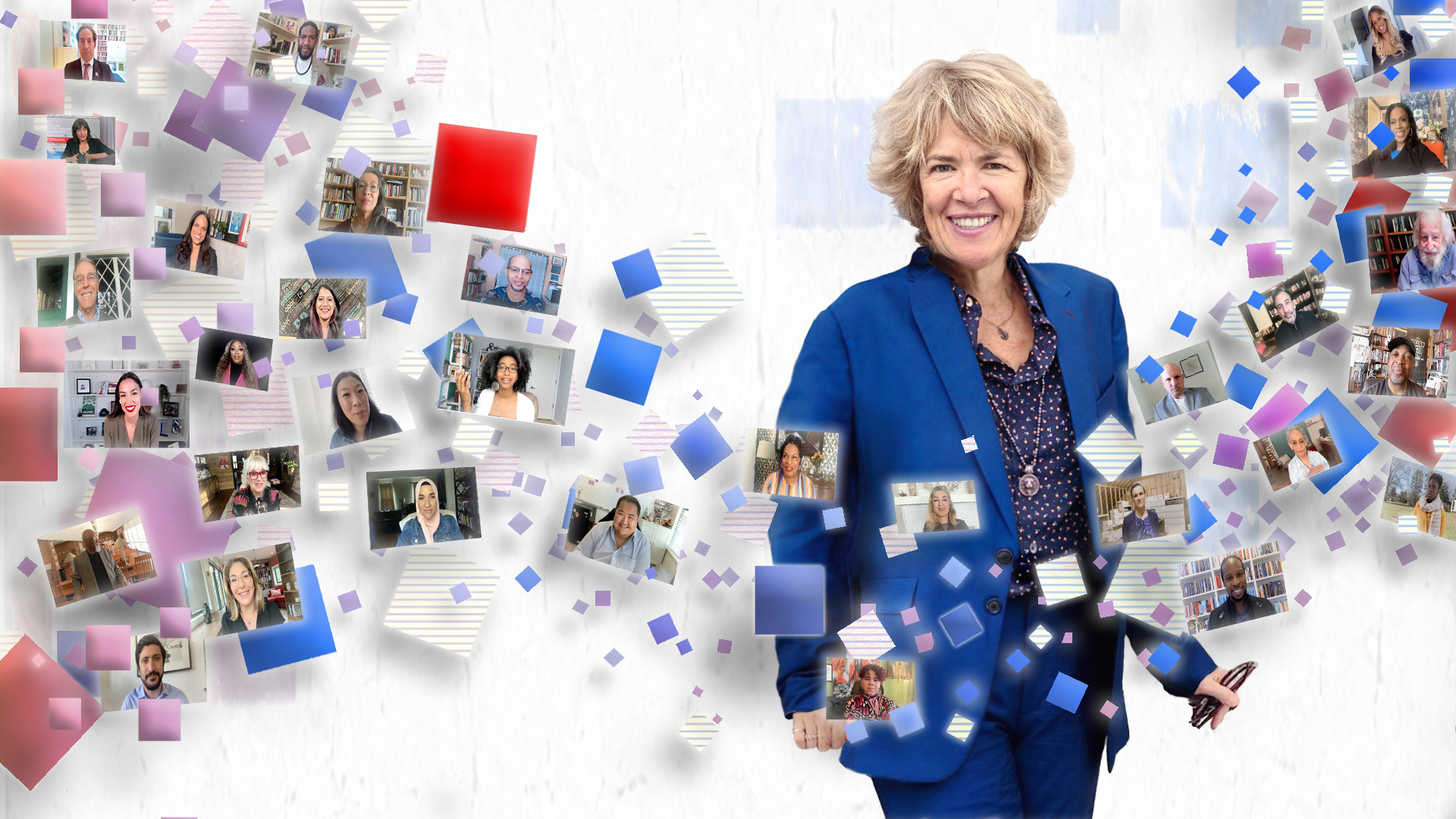

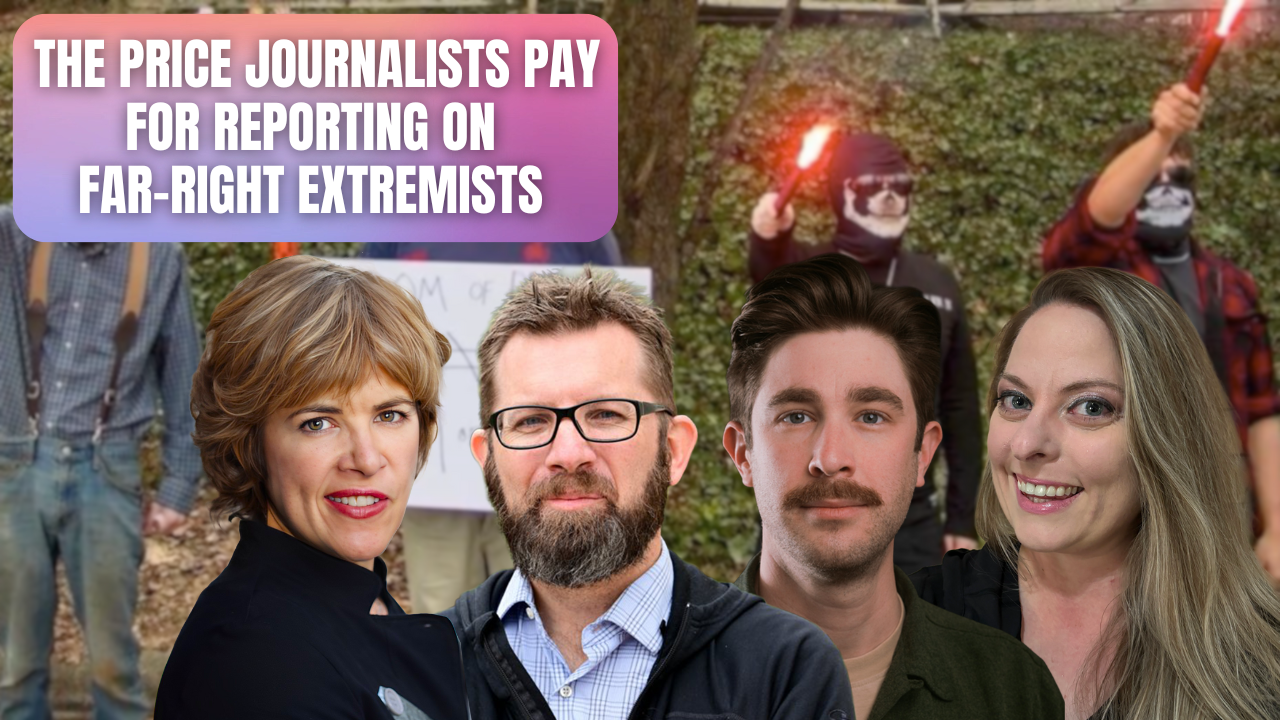
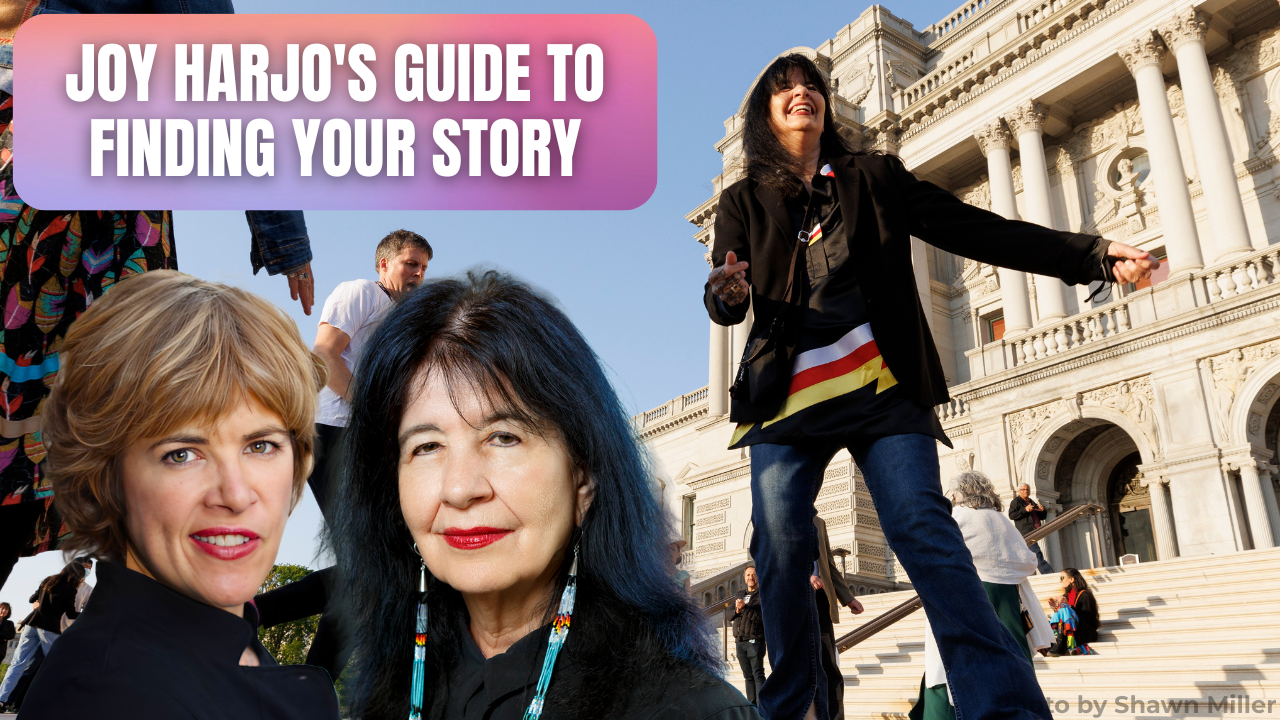
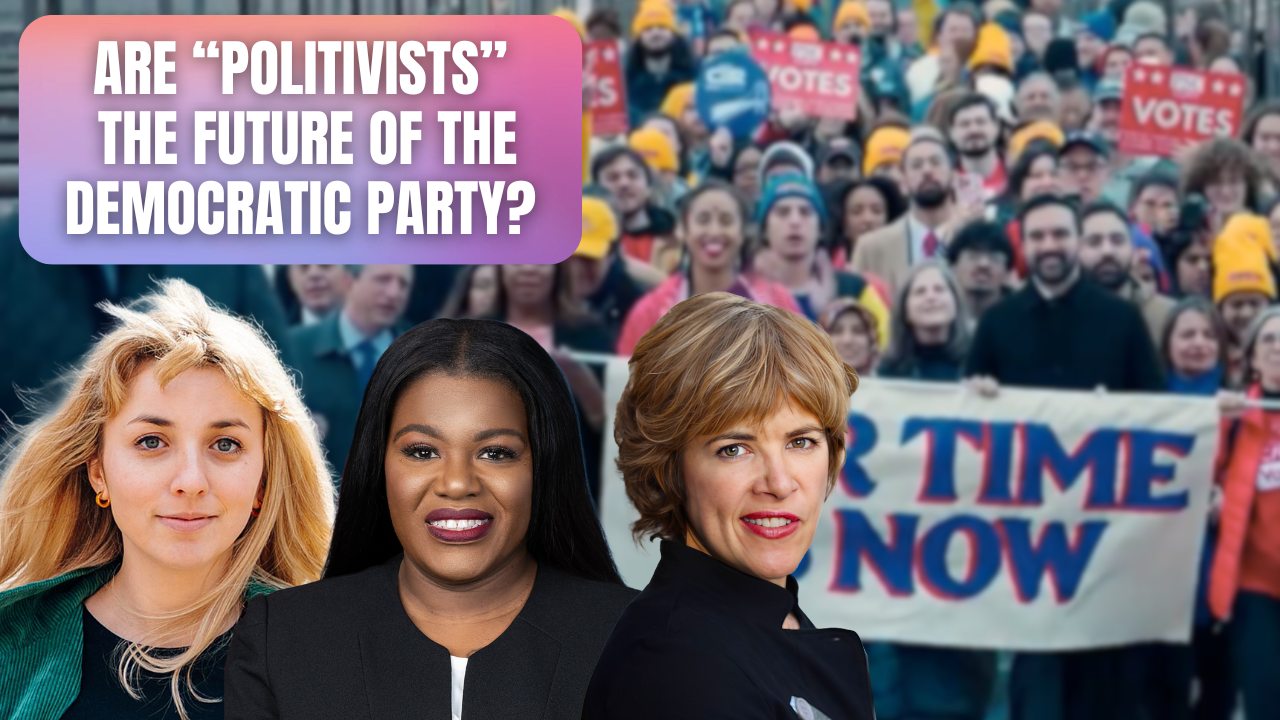
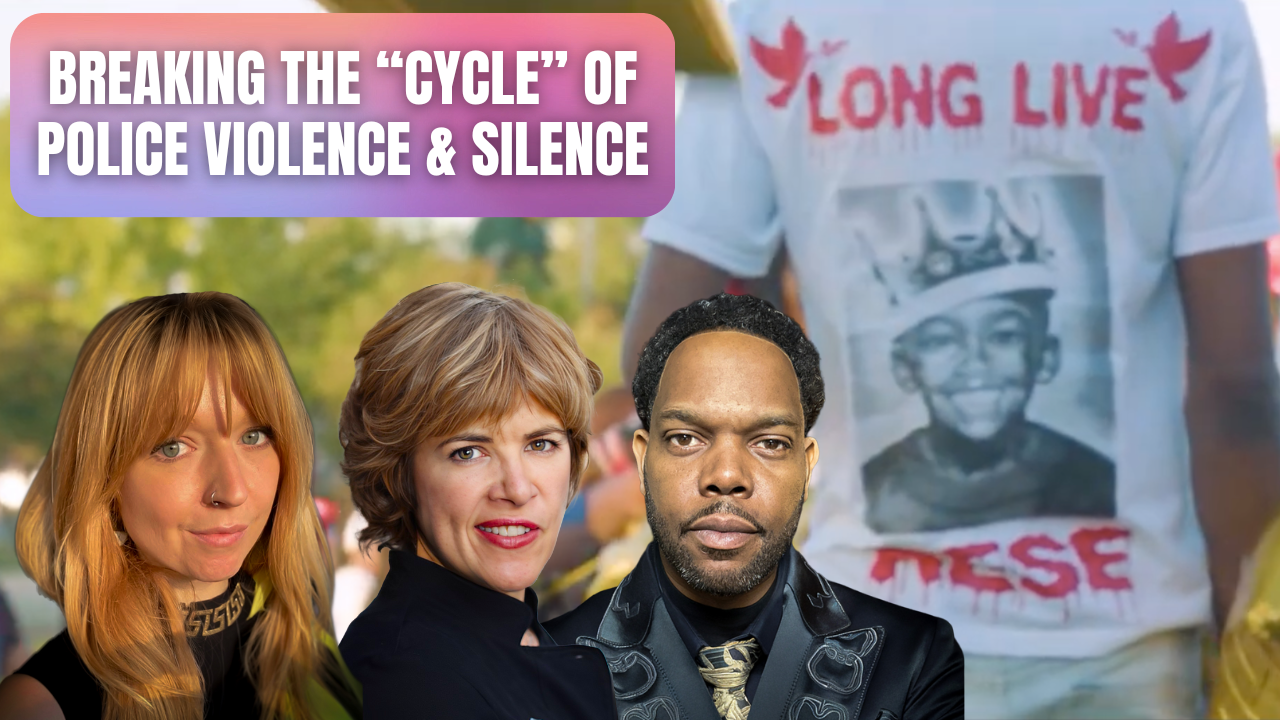
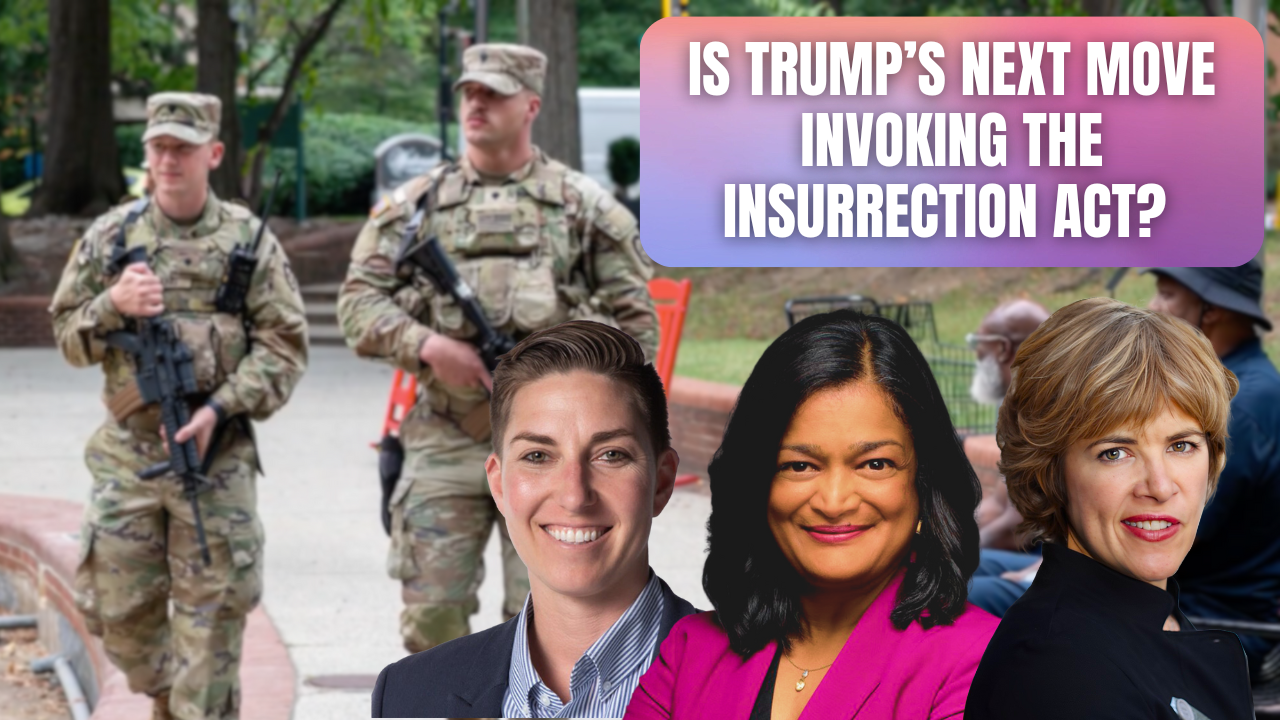
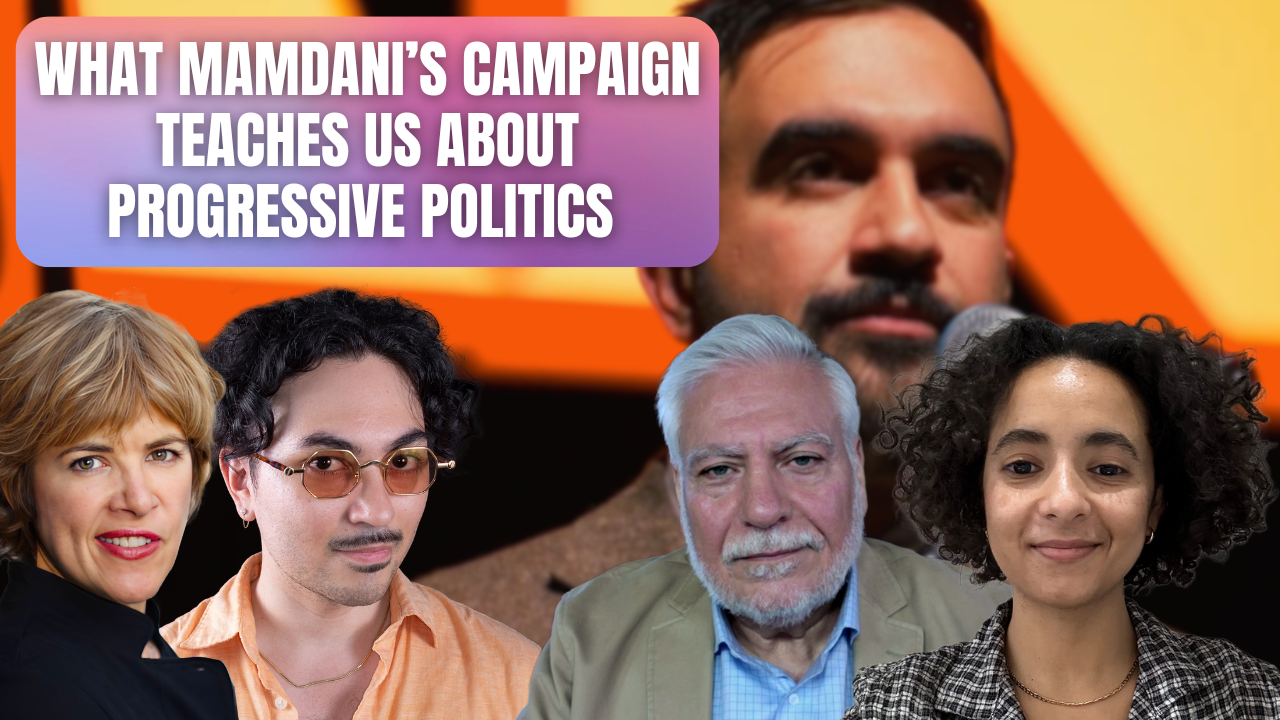
Leave a Reply